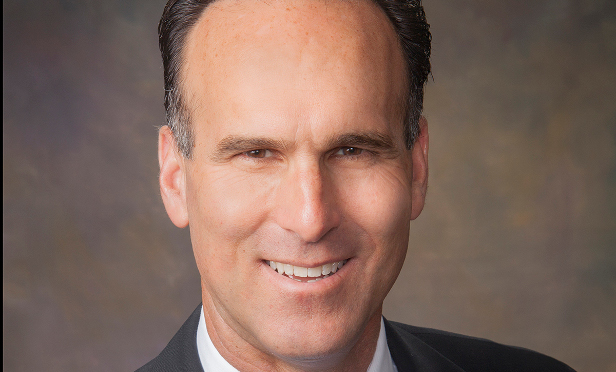
NEWPORT BEACH, CA—You may have heard that your neighborhood wholesale-club store could either be going away or turning into a fulfillment center for online orders. According to a recent report from CBRE, one major membership-only wholesale retail club has announced its plan to downsize its real estate footprint across the US, preparing for the shift away from brick-and-mortar locations in favor of online sales.
CBRE says of the 60 locations to close, 10 will be transformed into e-commerce fulfillment facilities, and the three locations in Southern California are ideal for e-commerce conversion based on key attributes such as freestanding construction, proximity to established industrial locations and excellent e-commerce demographics.
CNBC reported on Feb. 14 that in the wake of Sam's Club shutting 63, or about one-tenth, of its stores in January and laying off nearly 10,000 workers after a review of profitability, the company will consolidate its membership structure for customers and improve its e-commerce offerings by adding free shipping and opening more e-commerce warehouses this year.
GlobeSt.com spoke with CBRE executive managing director Kurt Strasmann about this development and what it means for retail CRE.
GlobeSt.com: What does this move mean for retail commercial real estate in Southern California?
Strasmann: There's obviously been a huge disruption with e-commerce and how people are shopping. The stores that are being converted to e-commerce fulfillment centers have to have a certain characteristic. It won't be a club store in a power center with other retail around it; rezoning and regulations will affect the use of those type of stores. These are the stores that are more stand-alone one-offs that are an easier reposition to a fulfillment type of center.
Strong regulations by cities mean that they prefer retail going into power centers, so there's a certain logic to figuring out which stores will likely transition to fulfillment centers. Will everyone do that? No, but if they're set up to be freestanding structures, adjacent to industrial, in a logical area with strong demographics that are less than a 30-minute drive time to the location, it's likely. I think some of those opportunities do exist. They'll do it when they can and when it aligns with the City's business plan.
GlobeSt.com: Do you feel the “club” stores' evolution from brick-and-mortar to e-commerce is a natural one?
Strasmann: Yes, given the current and anticipated growth of e-commerce. In a perfect world, some of their existing stores become fulfillment centers because they'd much rather have the consumer come into that store and pick up their merchandise rather than have it delivered so they will be enticed to buy more through impulse buying. Ideally, a component of these stores will serve as fulfillment centers, too. When you send product back or order something, the company would like you to physically go to the store to pick it up that same day because more times than not, you will spend more money there. There may be a new business model of companies charging a higher price to deliver a product to your home than if you pick it up at the store. If I were a retailer, that's the model I would go with, or one where there's no delivery charge if you come to the store. I believe these companies can't keep going like this with all the deliveries and returns—it's a financial drain.
GlobeSt.com: How is the transition to e-commerce expected to happen, and in which geographic locations will it be seen first?
Strasmann: It's got to be a customer center, so look at the demographics. It's my opinion a portion of these club stores will serve as a fulfillment center—a mini-fulfillment center, if you will. That is starting to take place now and will continue to grow. There has been a disruption in the retail business, and we have a long way to go; it's an evolving model, and it's not finished. It will look a lot different 10 years from now; we're only in the first couple innings of it. I believe the ease and the cost advantages to fulfillment are not going away. The best evidence of that is that retail sales had a 3% to 4% growth, which is great, but e-commerce is growing at such a higher rate, and the adoption level increases significantly every year in every age bracket. It's not just Millennials; my generation—the Baby Boomers and Gen X—is moving in that direction for two reasons: it's inexpensive and easy.
GlobeSt.com: What will be required of industrial owners/developers during this transition?
Strasmann: These will probably be freestanding buildings, so the mods will be inside. Each building will be different. These will be in locations best conducive to fulfillment, with clear-height loading capabilities, close to customers. There's a logic to it. You can't just put e-commerce in any box; you want well-located facilities that may need to be modified to facilitate loading.
© Touchpoint Markets, All Rights Reserved. Request academic re-use from www.copyright.com. All other uses, submit a request to [email protected]. For more inforrmation visit Asset & Logo Licensing.






